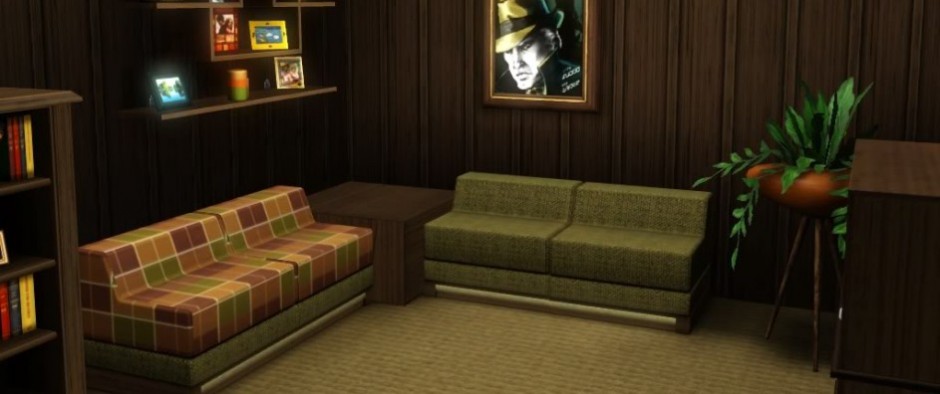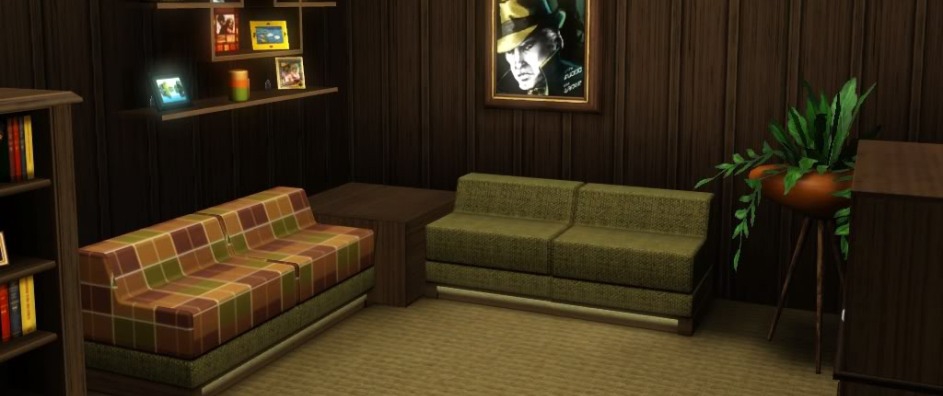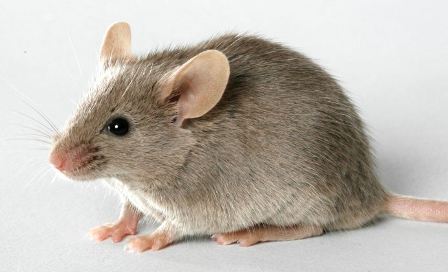The views expressed in our content reflect individual perspectives and do not represent the authoritative views of the Baha'i Faith.

Four years after I became a Baha’i, I published a short story (which is really narrative nonfiction) about my childhood, when a mouse was discovered in our garage, and had to be gotten rid of. The story is about killing a mouse.
But, as a Baha’i, I added the perspective of the mouse itself. The mouse was part of the experience, and the story. The mouse was part of the emotions that my younger brother Carter and I felt. And the mouse was part of my own spiritual development. I suspect now that the mouse probably felt emotions more deeply than any of us humans, because its very life was at stake.
Here’s the first half of the short story:
___________________
TIN
by Christopher Buck
____________________
In a paucity of garages, legend has it, mice still, indeed, do exist.
This must not be so, according to my father. Swathed in the hollow of his musty garage, amidst sawhorses fleshed with a tangle of rags — rags of the past, of obsolescence, resurrected on occasion for some dirty sort of work, among Dutch Boy paint cans toppled by imbalance, or neglect — my struggling father was taming a plank of screeching redwood, with one quite discrete saw. The strung-up and hung carcass of a buck in a corner, flinched with shadows of my father’s dark frame, instructing the redwood of my mother’s concept of time and space — a twittering that he mistook for an indictment of the saw, a twittering, a twittering.
A saw paused, to listen. Silence. Again, the charcoal of a shadow flamed across the ribs of the slaughtered buck, swinging slowly in the corner, the saw twittering again, as if sick, or neurotic, twittering. My father knew, then, it could not be the saw.
Only the breathing, now, of 200 pounds of flesh, the huge lungs of my father, sawing oxygen in the pause. Outside, a car fills an instant, rushes a clock. The alert shadow of my father’s head, poised in the abscission of noise, eclipses a photograph framing a moment on the wall. Captain George H. Buck, United States Marine Corps, promoted to the office of Major, awarded a brace of maple leaves, pinned to the dextra and sinistra of his throat.
Casters! Piano casters! “BOYS!” shook the nexus of kitchen, living room, hall, to the walls of our room. “BOYS!”
“Dad wants us!” my brother shuddered, interrupting our mythology of wooden building blocks. Knocking down our castle of salvation, Carter and I, in our bare and holey socks, rushed from our room, skated on momentum down the hardwood floor of the hall, zoomed through the living room and kitchen, burst through the door to the garage. “SHSH!”
We petrified at the command.
“Boys,” whispered father, creating a panic of suspense. “Be as quiet as you can. I think there’s a mouse in here, but I can’t tell where. Lis—”
“A mouse!?” interrupted Carter.
“Yes!” retorted father, as if his son had challenged the obvious. “Now listen closely so we can tell where it’s coming from!”
The next few minutes were hours, as the carcass of the gutted buck swung in our eyes, Carter beginning to fidget, my foot being stuck with pins for loss of blood.
Casters! Squickleleequeak — tpht, tfft. Piano casters!
A voracious pause tossed our eyes into a corner, below fly-scabbed cobwebs and pendent neck of the buck, its head already mounted on the wall, circumspecting the garage with an impartial stare.
Squickleleequeak — tpht, tfft.
“There it is again!” affirmed my father. “Hear it?” A hazy nod from Carter mirrored back the suspicion, our father zeroing tympanic membranes toward the corner with a twist of the neck, stern faced cocked for incrimination, hammer of the middle ear poised as a gavel over his sentient anvil. With an accusing finger, I cried, “It’s in the corner, Dad, it’s coming from the corner!”
Dad’s military hand motioned an order, as if it were war, Major George H. Buck and his company of two, on special mission, pressing forward through the rank jungles of the Philippines, through a confusion of webs and snarled rags — cold, oily linoleum, fat with the slap of soles, lusting for a terse verdict, the squickling leakage of anguish, squirming beneath the feet of an immediate dream.
Read the conclusion of Christopher Buck’s Tin: Awakening Empathy for Every Living Thing
Read the previous article in the series: Animals’ Eyes Are the Mirrors of Our Souls
©2013 by Christopher Buck.

















Comments
Sign in or create an account
Continue with Googleor